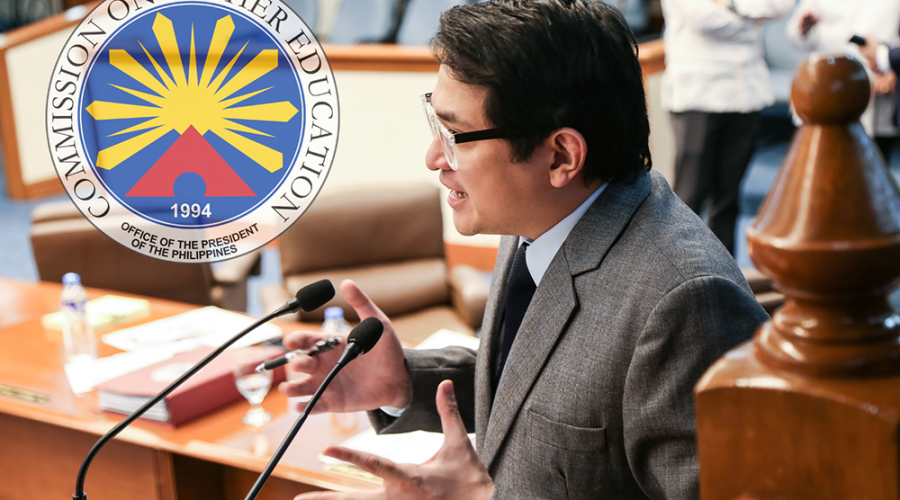Bam: CHED ‘out of touch’ on claim SUC students are ‘moneyed, non-poor’
Senator Bam Aquino described as “out of touch” the Commission on Higher Education’s claim that students in state colleges and universities (SUCs) are mostly moneyed and non-poor.
“Three out of four ng estudyante sa SUC ay nagda-drop-out dahil kulang ang kanilang pambayad. Paano sila naging mayaman,” said Sen. Bam, chairman of the Committee on Education in the 17th Congress.
Sen. Bam’s reaction came after CHED chairperson Patricia Licuanan said in a television interview that “only moneyed and non-poor students will enjoy the P8.3-billion budget for free tuition fee in SUCs”.
While he admitted that the country’s “poorest of the poor” are not in college, Sen. Bam said many of the students in SUCs still come from families of minimum-wage earners.
“Hindi masasabing sila ang poorest of the poor, pero kailangan pa rin nila ng tulong pinansiyal para makatapos ng kolehiyo,” said Sen. Bam.
As chairman of the Committee on Education, Sen. Bam said the institutionalization of free tuition in SUCs will keep students in schools and lead to more college graduates.
“We want more people to get a degree. Sana sa tulong ng repormang ito, dumami pa ang college graduates sa Pilipinas na makatutulong sa kanilang pamilya sa malapit na hinaharap,” Sen. Bam said in a television interview.
Aquino filed Senate Bill No. 177 or the Free Higher Education for All Act giving free tuition fee to all students in SUCs.
Aside from Sen. Bam’s bill, several senators have filed similar measures to institutionalize free college education in SUCs beyond the allocation of P8.3 billion in the 2017 budget.
“We’re very positive about it, we’re very hopeful about this bill, and we’re getting a lot of cross-party support. We hope to pass it as soon as possible,” said Sen. Bam.
Aside from free tuition fees in SUCs, Sen. Bam has also filed other education-related bills in the 17th Congress.
Among them is the Senate Bill No. 1278 or Trabaho Centers in Schools Act, which recently hurdled the committee level and will be discussed in plenary this year.
Sen. Bam also wants to give out of school youth (OSY) in the country access to education through his Senate Bill No. 171 or the Abot Alam Bill, which seeks to institutionalize alternative learning system (ALS).

Recent Comments